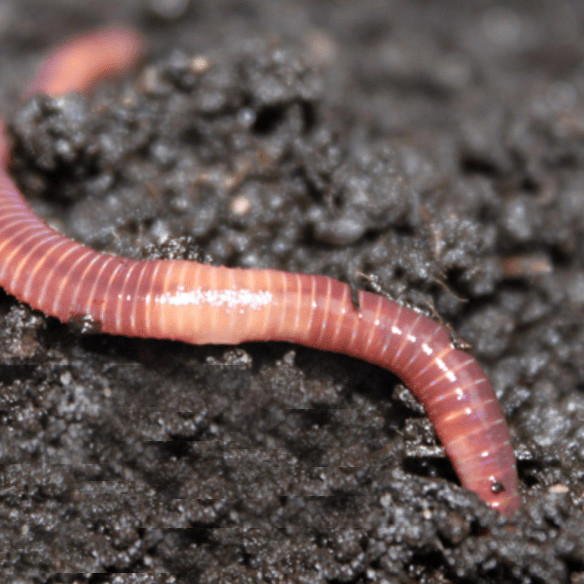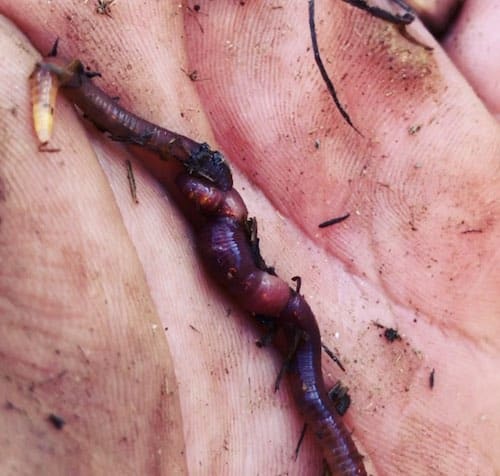Why Red Wigglers Are Essential for Natural Farming
Red wigglers play a critical function in organic farming, mainly through their distinct ability to break down natural products and boost dirt health and wellness. The extent of their effect on agricultural techniques and dirt biology raises interesting concerns regarding the future of organic farming.
Function of Red Wigglers in Soil Health

Additionally, red wigglers boost soil framework by developing channels as they burrow. These networks improve oygenation and water infiltration, advertising a healthier origin setting. Their activity likewise assists in keeping ideal dampness levels, which is vital for healthy and balanced plant development.

Advantages of Worm Spreadings
Worm spreadings, the nutrient-rich excrement produced by red wigglers, offer as a powerful modification for natural farming. These spreadings are abundant with vital nutrients such as nitrogen, phosphorus, and potassium, which are essential for plant growth. Unlike artificial fertilizers, worm castings launch nutrients gradually, supplying a steady supply with time and decreasing the danger of nutrient leaching and runoff.
Furthermore, worm spreadings boost soil structure and oygenation, promoting healthier root systems. Their high raw material material improves wetness retention, making it possible for plants to much better withstand dry spell conditions. Furthermore, worm spreadings have valuable microbes that sustain plant health by reducing microorganisms and boosting vitamins and mineral uptake.
The application of worm castings can result in enhanced crop returns and enhanced high quality of fruit and vegetables, making them an invaluable source for natural farmers. Their use also lines up with sustainable farming practices, adding to dirt fertility without the negative environmental impacts connected with chemical fertilizers. Overall, the consolidation of worm spreadings into agricultural methods promotes a much more durable and efficient ecosystem, highlighting the value of red wigglers in organic farming systems.

Enhancing Nutrient Cycling
(red wiggler composting worms)Nutrition biking is a crucial procedure in chemical-free farming, and the integration of red wigglers plays a critical duty in enhancing this cycle. These earthworms contribute considerably to the breakdown of raw material, promoting the transformation of intricate organic products right into less complex, a lot more obtainable nutrients for plants. As red wigglers take in decomposing organic issue, they excrete nutrient-rich spreadings, which are bristling with beneficial microbes. This microbial activity more help in the decay procedure, making certain that vital nutrients are readily offered for plant uptake.
Moreover, red wigglers help to speed up the mineralization of nutrients, transforming them from inert types right into bioavailable kinds that plants can take in. This procedure is essential for maintaining dirt fertility and advertising healthy and balanced crop development. The existence of red wigglers likewise encourages a diverse soil ecosystem, fostering a balance of nutrients that sustains various plant varieties.
Improving Dirt Framework
The improvement of soil structure is crucial for fostering a healthy and balanced agricultural community, and the activity of red wigglers dramatically contributes to this renovation. These check over here earthworms play a necessary role in aerating the dirt and producing a network of networks that facilitate water infiltration and origin infiltration. As they tunnel via the soil, red wigglers damage up compressed layers, allowing for much better oxygen exchange and advertising microbial activity.
Furthermore, the raw material created from their waste, recognized as vermicast, boosts soil aggregation. This procedure develops secure clumps of dirt particles, boosting soil porosity and reducing disintegration (red wigglers). The presence of red wigglers likewise urges the growth of valuable fungal networks, which are vital for nutrient uptake by plants
Encouraging Lasting Practices
Incorporating red wigglers into natural farming methods not just improves dirt wellness but also advertises sustainable farming approaches. These earthworms play an important role in nutrient cycling, transforming organic waste right into useful compost that enhances the soil. By utilizing red wigglers, farmers can efficiently reduce reliance on synthetic fertilizers, thus minimizing chemical runoff and its detrimental effects on ecosystems.
In addition, the consolidation of red wigglers urges the practice of recycling natural products, such as cooking area scraps and farm waste. This waste decrease technique not just lowers disposal prices yet additionally promotes a closed-loop system where nutrients are constantly gone back to the dirt (red wigglers). Such techniques are essential in alleviating environment change, as they boost carbon sequestration and decrease greenhouse gas emissions
In addition, red wigglers improve water retention in the dirt, which is critical in times of dry spell. Their burrowing tasks develop networks that allow water to permeate deeper into the ground, hence promoting effective water usage. Ultimately, integrating red wigglers right into natural farming not just sustains biodiversity however also straightens with the principles of lasting farming, supplying a holistic technique to food manufacturing.
Conclusion
To conclude, red wigglers play a crucial role in chemical-free farming by substantially enhancing dirt health and wellness and fertility. Their capacity to decay raw material and produce nutrient-rich spreadings cultivates a thriving microbial community, which is crucial for nutrient cycling. In addition, the tunneling activities of these worms boost soil structure and oygenation, facilitating better water seepage and root growth. Hence, the assimilation of red wigglers into farming techniques is vital for promoting sustainability and enhancing general soil quality.